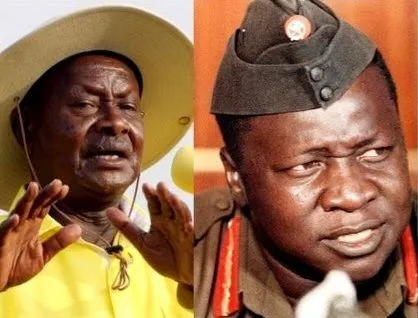President Yoweri Museveni has shared a little-known story about the struggle against Idi Amin, explaining why he refused a proposal to use foreign mercenaries to kill the former dictator.
Speaking at a public event in Jinja on Friday, Museveni said that during his trips to Nairobi and Europe in the 1970s, some well-dressed and educated people suggested that he hire Israelis to assassinate Amin.
“You cannot believe it. These were educated people wearing suits and ties. It is like a sickness,” Museveni said, adding that this showed the lack of confidence Africans had in themselves at the time.
He explained that he turned down the idea, not only because of moral reasons but also because he believed it was not a wise political strategy.
“First of all, we do not believe in assassinations,” Museveni stated. “We shall uproot Idi Amin, lock, stock, and barrel.”
The President noted that his main fear was that a sudden assassination could leave a power vacuum and open the way for another ruthless figure, such as Brigadier Isaac Maliyamungu, one of Amin’s feared lieutenants.
Attempts on Amin’s Life
Amin’s rule from 1971 to 1979 was filled with assassination attempts. Opposition groups like the Save Uganda Movement staged guerrilla attacks, bombings, and ambushes in efforts to remove him.
One major incident took place on June 10, 1976, when a grenade was thrown at Amin’s car. The explosion killed his driver but Amin survived. Another plan, called “Operation Mafuta Mingi” in 1977, involved Ugandan soldiers and pilots who tried to topple his rule.
Amin often claimed he had survived at least nine assassination attempts, describing his survival as proof of divine protection.
The Final Overthrow
Museveni reminded the audience that Amin was not defeated by secret plots but by open military confrontation. The Uganda–Tanzania War of 1978 to 1979, which began after Amin invaded Tanzania, ended with his overthrow.
The Tanzanian People’s Defence Force, working with Ugandan exiles and liberation fighters, crushed his army and drove him into exile in April 1979.
Museveni said this outcome proved the wisdom of waiting for a decisive military campaign instead of relying on a quick assassination that could have thrown the country into even more chaos.








